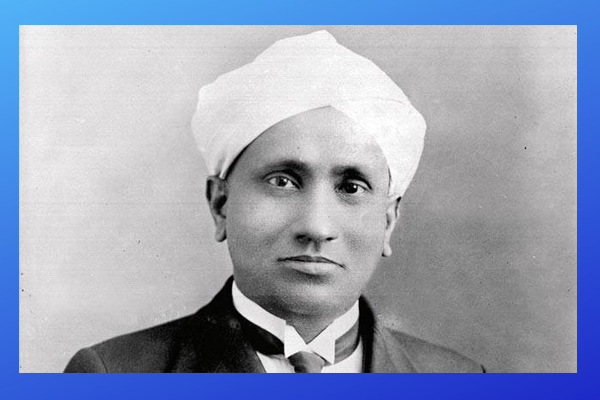1. Rabindranath Tagore – Nobel Prize for Literature (1913)

2. CV Raman – Nobel Prize for Physics (1930)

Image courtesy India Today
If you have ever wondered why the sky is blue, then you have at some point unwittingly thought of the Raman Effect. CV Raman or Sri Chandrashekhara Venkata Raman was an Indian physicist from Tamil Nadu who became the second of the Indian Nobel Laureates. He was awarded the Nobel Prize in Physics for his exemplary work in the field of light scattering. His research – termed the Raman Effect or Raman Scattering – earned him the achievement of being the first person from Asia to be awarded for achievements in the field of science. He discovered why the sky is blue, through his research on how light behaves when it passes through various substances. The day of his discovery, February 28, is celebrated as National Science Day in India.
3. Har Gobind Khurana – Nobel Prize for Medicine (1968)

Har Gobind Khurana was a biochemist who was born in Raipur, in British India. He later emigrated to the United States and became an American citizen. He was awarded the Nobel Prize in Medicine for his work in genetic research. He shared this prize with his fellow researcher. His research in the field of genetic code earned Har Gobind Khurana a place in the Indian Nobel Prize winners list.
4. Mother Teresa – Nobel Peace Prize (1979)

When a person dedicates their entire life to helping and uplifting the poor and needy, the world sits up and takes notice. Mother Teresa was born in Kosovo, Serbia but moved to India when she was 19. She trained and taught in Darjeeling with the Sisters of Loreto. In 1946, Mother Teresa, known then as Sister Teresa, experienced a “call within the call” when she saw the poor and downtrodden while on a train ride from Calcutta. In 1948, she began work to help the poor, ill, downtrodden and those living on the fringes of society through the charity organization – Missionaries of Charity. She joined the list of Nobel Prize winners in India when the Nobel Peace Prize was awarded to her in 1979, recognizing her work in overcoming poverty and distress. She was also canonized as a saint by the Roman Catholic Church in 2016.
5. Subrahmanyan Chandrasekhar – Nobel Prize for Physics (1983)

Chandrashekhar was born in Lahore in undivided India and spent his working life in the United States, where he eventually became a citizen. He was an astrophysicist and, incidentally, a nephew of CV Raman. He shares his Nobel Prize with his fellow researcher for their work relating to the structure and evolution of stars. He even has a scientific and physical construct – the Chandrashekhar Limit – named after him. He joined the list of Nobel Prize winners in India in 1983.
6. Amartya Sen – Nobel Prize for Economics (1998)

Amartya Sen was awarded the Nobel Prize in Economics for his work on welfare economics. Sen was born and raised in Kolkata where he still spends his winters. He spends the rest of his time teaching in the USA and UK. He has written many books – the Argumentative Indian being one of them. Amartya Sen was the fourth Indian to bring a Nobel Prize to India. Amartya Sen has always been in the news for his vociferous criticism of Indian politics and economics.
7. Venkatraman Ramakrishnan – Nobel Prize in Chemistry (2009)

After earning a doctoral degree in Physics, Venkataraman Ramakrishnan started studying molecular biology at the University of California, San Diego. Years later, he published a series of groundbreaking scientific papers on the RNA structure of ribosomal unit. Ramakrishnan was awarded the Nobel Prize in recognition of his work in this field. He shared this award with two of his research peers. Ramakrishnan was born in Chidambaram in Tamil Nadu; his parents were both scientists and his early education was in Tamil Nadu and Gujarat.
8. Kailash Satyarthi – Nobel Peace Prize (2014)

Have you heard of the Bachpan Bachao Andolan? This NGO, started by Kailash Satyarthi – a child rights activist, works to end child labour. Satyarthi was awarded the prestigious Nobel Peace Prize in 2015 for his work towards eradicating child labour and child trafficking. To date he has liberated over 88,000 children from child labour and slavery. Kailash Satyarthi joined the list of Indian Nobel Prize winners in 2014 when he shared the prestigious prize with Malala Yousafzai.
9. Abhijit Banerjee – Nobel Prize for Economics (2019)

Abhijit Banerjee won the Nobel Prize in Economics jointly with his wife Esther Duflo and American Michael Kremer for their experimental approach to alleviating global poverty. Banerjee is the son of two economics professors and did his early schooling in Kolkata’s South Point School and later studied at Presidency College. He has been living and working in the United States since the 1980s.
In addition to these nine winners from India, there have been two more winners who were born in India. Rudyard Kipling, author of the Jungle Book was born in Mumbai in 1865. He won the Nobel Prize in Literature for his work in 1907 and was the first English-language writer to receive the prize.
Ronald Ross, was born in Almora in British India and won the Nobel Prize in Medicine for his exceptional work in the field of malaria.




No comments:
Post a Comment